Connecting Communities: Get to Know The 54th Mile Policing Project Team
Co-Founders of the 54th Mile Policing Project
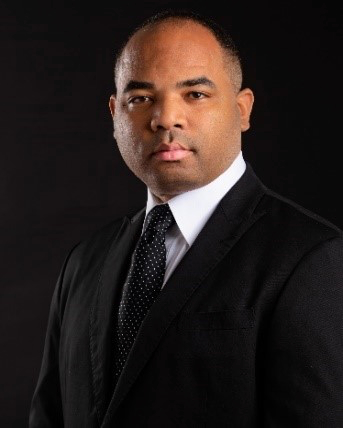
Asst. Chief Tarrick McGuire
A native of Dallas, TX, Tarrick McGuire began a career in public service with the Arlington (TX) Police Department in 2003. During his tenure, he has served in multiple positions before being appointed Assistant Police Chief in 2022. As a nationally recognized public speaker and published author, Chief McGuire has been a leading authority on community-police relations, police pattern and practice, evidence-based policing, police reform, and public policy. In 2020, he was appointed to the Council on Policing Reforms and Race by the National Policing Institute, and in 2022, he was inducted into the Evidence-Based Policing Hall of Fame.
During his career, Chief McGuire has been at the forefront of developing innovative strategies and leading national change in community-police relations impacting lives globally. In 2015, he developed and piloted a community engagement model in his local community to build relationships between youth and the police. The Mentoring Arlington Youth model reduced racial disparities in arrests and school discipline and is a national model to build public trust. In 2016, Chief McGuire served as a law enforcement fellow with the International Association of Chiefs of Police (IACP) contributing to research and technical assistance to US police departments on 21st Century Policing. During this period, Chief McGuire worked with the Department of Justice’s Office of Community Oriented Policing Services (COPS Office) and the Obama Administration to improve policing practices, policy, and community-police relations nationally.
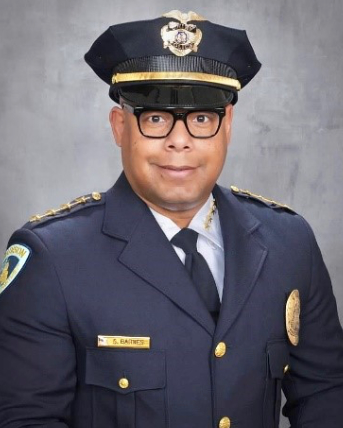
Chief Shon F. Barnes
Chief Barnes is a nationally recognized leader in crime reduction and community-police relations. He was previously the Director of Training and Professional Development for the Civilian Office of Police Accountability in Chicago, Illinois. Chief Barnes was the Deputy Chief of Police in Salisbury, North Carolina (2017-2020) and a Captain with the Greensboro (NC) Police Department where he began his career as a patrol officer in the fall of 2000. Chief Barnes was honored as a National Institute of Justice LEADS (Law Enforcement Advancing Data and Science) Scholar for using innovative technology to reduce crime and is a council member of the National Police Institute’s Council on Policing Reforms and Race. The council is a nonpartisan initiative that uses research and evidence to offer recommendations to resolve some of the most pressing issues regarding police reform. Throughout his career Chief Barnes has implemented Neighborhood-Oriented Policing which focuses on smaller police beat response, police neighborhood ownership, and community engagement at all levels within the organization.
Chief Barnes attended Elizabeth City (NC) State University where he received a BA in history/pre-law and the University of Cincinnati (OH) where he received an MS in criminal justice. He has earned a Ph.D. in leadership studies from North Carolina Agricultural and Technical State University (Greensboro, North Carolina).
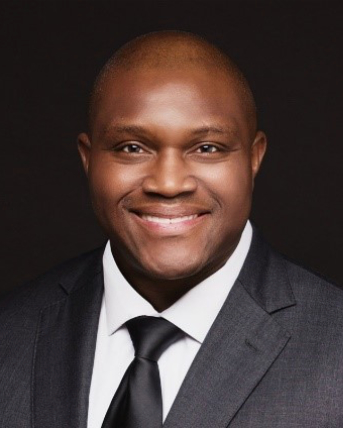
Dr. Obed Magny
Dr. Obed Magny is the Founder and CEO of Magny Leadership, a management consulting company. Dr. Obed Magny is a former police officer of the Sacramento (CA) Police Department with nearly two decades of experience. He’s worked in various capacities including on Patrol, as a School Resource Officer, serving on the Union Board, and within the Professional Standards Unit.
Dr. Magny is a co-founding member of the 54th Mile Policing Project and a co-founder and executive board member of the American Society of Evidence-Based Policing (ASEBP). He is a former National Institute of Justice LEADS (Law Enforcement Advancing Data and Science) Scholar. He is a Policing Fellow with the National Policing Institute, where he currently serves as the chairman of the Personnel and Staffing Working Group.
In addition to being a consultant, Dr. Magny is an executive coach, leadership speaker, and public policy advisor. Dr. Magny’s expertise includes motivation, job satisfaction, diversity, trauma, race and community-police relations, and emotional intelligence.
The 54th Mile Steering Committee
Dr. Cedric L. Alexander

Cedric Alexander, Psy.D. is a law enforcement expert with over 40 years of experience in public safety, currently serving as Commissioner of Community Safety at the City of Minneapolis. He has appeared on national media networks to provide comment on police- community relations and as a CNN, MSNBC, and Fox law enforcement analyst has written numerous editorials including “What’s the plan now, America?” “The Chauvin trail is holding a mirror up to America’s insufficient police training,” and “Capitol riot a stunning reminder of America’s policing crisis.”
Dr. Alexander has also served as Deputy Commissioner of the New York State Division of Criminal Justice Services and as an assistant professor at the University of Rochester Department of Psychiatry. He is a former National President of the National Organization of Black Law Enforcement Executives (NOBLE). Dr. Alexander has lectured on police stress and burnout and currently trains on topics of management and leadership centered around 21st Century Policing. He is the author of The New Guardians: Policing in America's Communities for the 21st Century and In Defense of Public Service: How 22 Million Government Workers Will Save Our Republic.
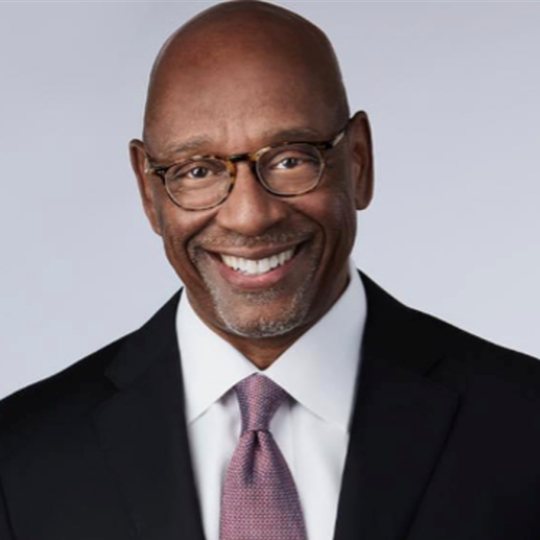
Dr. Cedric L. Alexander
Daryl V. Atkinson

Daryl V. Atkinson is the Co-Director and Co-Founder of Forward Justice. At Forward Justice, Atkinson serves in several critical roles, including leading movement-building litigation, advancing public policies that address the needs of people with criminal records, and offering tremendous thought leadership through scholarship and public speaking on criminal justice, race, and democracy. For example, Atkinson was the lead attorney in the seminal felony disenfranchisement case, Community Success Initiative v. Moore, that challenged North Carolina’s felony disenfranchisement regime. Atkinson and Forward Justice were the central advocates that ushered in the passage of the Second Chance Act, which expanded eligibility and access to criminal record clearance for people with records. Atkinson was an editor of “What We Know”, a compilation of innovative policy proposals developed by currently and formerly incarcerated people; a contributing author to “Parsimony and Other Radicals Ideas”, a compendium of articles on creating transformational change in the criminal legal system.
Prior to joining Forward Justice, Atkinson was the first Second Chance Fellow for the US Department of Justice (DOJ). At DOJ, Atkinson was an advisor to the Second Chance portfolio of the Bureau of Justice Assistance (BJA), a member of the Federal Interagency Reentry Council, and a conduit to the broader justice-involved population to ensure that BJA heard from all stakeholders when developing reentry policy. Most notably, in 2014, Atkinson was recognized by the White House as a “Reentry and Employment Champion of Change” for his extraordinary work to facilitate employment opportunities for people with criminal records.
Mr. Atkinson is a founding member of the North Carolina Second Chance Alliance and is on the Board of Directors for the Clean Slate Initiative. Atkinson has appeared in numerous media outlets including the Washington Post, CBS, NowThis, and MSNBC. He received a BA in Political Science from Benedict College, Columbia, SC, and a JD from the University of St. Thomas School of Law, Minneapolis, MN.
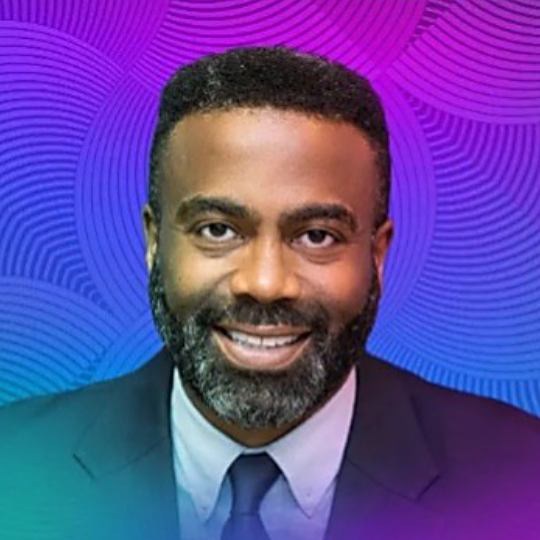
Daryl V. Atkinson
Michael Collins
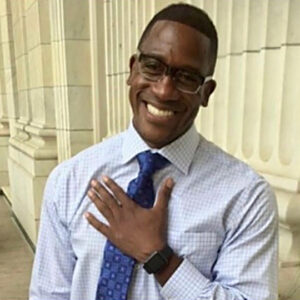
Michael Collins served as Chief of Staff and Floor Assistant to Congressman John Lewis for almost 20 years, directing the work of the Congressional staff in Washington and in Atlanta, managing long-term legislative plans, and acting as the primary liaison for constituents and various interest groups. Following the Congressman’s passing in 2020, Michael was tapped to serve as Special Assistant to President Biden and Director of Public Engagement and Intergovernmental Affairs for Vice President Harris.
He now serves as Director of Policy and Government Affairs for Starbucks Corporation. Michael earned a BA at Morehouse College, an MBA at Emory University, and an MSW at Boston College. He is a member of Alpha Phi Alpha Fraternity, Inc., and has served on the boards for the Faith and Politics.
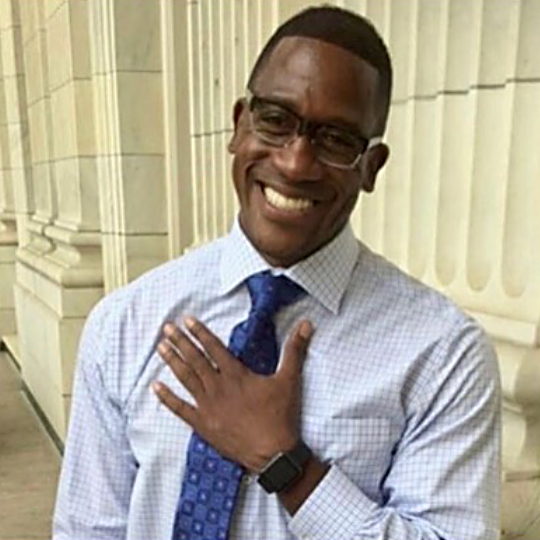
Michael Collins
Kym Craven
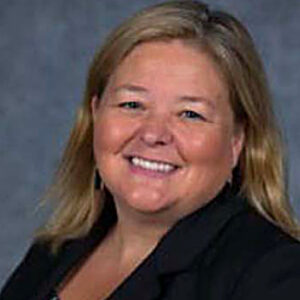
Kym Craven is the Executive Director of the National Association of Women Law Enforcement Executives and the director of the Public Safety Strategies Group LLC. Ms. Craven began her 32-year career at the Lowell, Massachusetts Police Department working in several areas including traffic safety, community engagement, and grants management. During her career, Ms. Craven has provided assistance to over 350 municipalities and state agencies. She specializes in facilitating and conducting organizational, vulnerability, and technology assessments; strategic planning; survey development; data analysis; staffing analysis; police district boundary assessments; grant writing and management, along with assisting agencies implement the recommendations from the 21st Century Policing Task Force Report. Ms. Craven has led projects on community policing, highway safety, homeland security, incident command systems, emergency response planning, and leadership training.
Recently, Ms. Craven has led police department organizational assessments, the development of the Youth Violence Reduction strategic plan, and provided assistance in performance management strategies to guide the development of the strategy’s dashboard. She led the development of the strategic plan for the Massachusetts Executive Office of Public Safety and Security (EOPSS) and oversaw the work of five data analysts working on Statnet projects in 30 police departments. Ms. Craven has also provided public safety management consulting services to the City and County of San Francisco Police Department, The City of Boston Police Department, the State of Vermont, the Massachusetts Executive Office of Public Safety and Security, the Las Cruces, New Mexico, Police Department, the Pierce County, Washington, Sheriff’s Department, the Dallas Area Rapid Transit Police, the State of Vermont, the Portsmouth and Hooksett, New Hampshire, Police Departments, the Town of Bridgton, Maine, the City of Somerville, Massachusetts, Harvard University and the Center for Campus Environmental Excellence (C2E2) for campus-related security services.
Ms. Craven has significant experience with developing strategies to combat crime and securing funding for such initiatives. Grants secured include community policing, multijurisdictional task force operation, gang reduction, juvenile justice delinquency prevention, substance abuse prevention, racial profiling data analysis, problem-solving partnerships, police technology acquisition, COPS Ahead, COPS More, Secure our Schools, School Resource Officer program development and hiring, Community Development Block Grants and other related programs.
Ms. Craven holds a Bachelor of Science in criminal justice from the University of Lowell and a Master of Arts in criminal justice from Anna Maria College. Ms. Craven, a former police officer holds certificates in community policing, leadership facilitation, incident command, vulnerability assessments, emergency response planning, terrorism threat assessment, and numerous other criminal justice programs.
Ms. Craven is a member of the International Association of Chiefs of Police, the New England Chiefs of Police, and the International Association of Women in Policing.
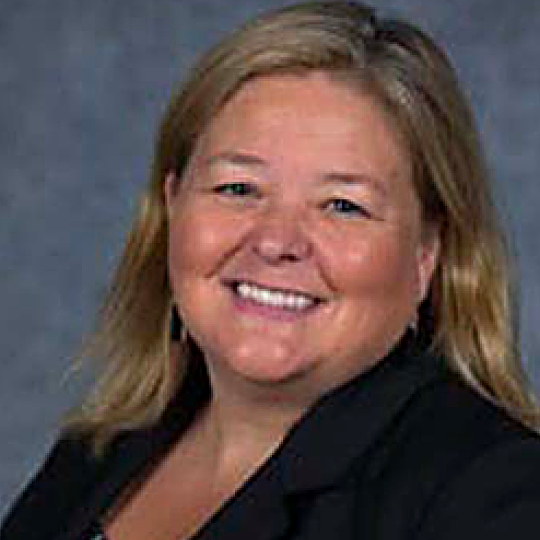
Kym Craven
Chief Kevin Davis
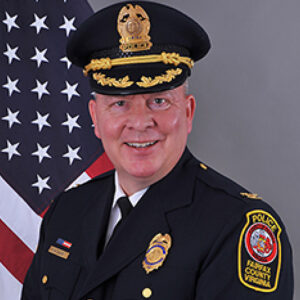
Chief Kevin Davis led the Baltimore Police Department as its 39th Police Commissioner from 2015 to 2018 following a period of historic unrest and during the Department of Justice’s (DOJ) civil rights investigation. Davis negotiated a federal court-ordered consent decree with the DOJ during a Presidential transition of power. He has substantial crisis leadership experience in a national spotlight while leading reform initiatives in mental/behavioral crisis response, use of force, training, and technology that received industry attention and accolades. Davis has built a reputation as a collaborative leader and consensus builder amongst diverse community groups, faith communities, elected officials, law enforcement peers, and business partners. Prior to leading the nation’s 8th largest police department in Baltimore, Davis served as Police Chief for the Anne Arundel County (MD) Police Department and retired as the Assistant Police Chief for the Prince George’s County (MD) Police Department. He is a graduate of the FBI National Academy and FBI National Executive Institute. Davis served on the Board of Directors for the International Association of Chiefs of Police, Vice-Chair of the Maryland Police Training and Standards Commission, First Vice President of the Maryland Chiefs of Police Association, member of the Maryland Governor’s Justice Reinvestment Oversight Board, and member of the Commission on Judicial Disabilities, an independent body that hears complaints made against Maryland judges.
Recognized by the Maryland Daily Record as an Influential Marylander, Davis earned a master’s degree in management from Johns Hopkins University and a bachelor’s degree in English from Towson University. He has been recognized by the Johns Hopkins University Alumni Association with its Woodrow Wilson Award for Distinguished Government Service and is one of 18 alumni from DeMatha Catholic High School to ever receive its Distinguished Alumnus Award. A fourth-generation public safety servant, Davis was born and raised in College Park, home to Maryland’s flagship University. He was awarded the Key to the City of College Park.
During a stint in the corporate world, Davis served as GardaWorld’s Director of Security Consulting Services and Chief Security Officer for Armored Things in Boston. He was an adjunct professor at American University and lecturer at The Catholic University of America, both in Washington, DC.
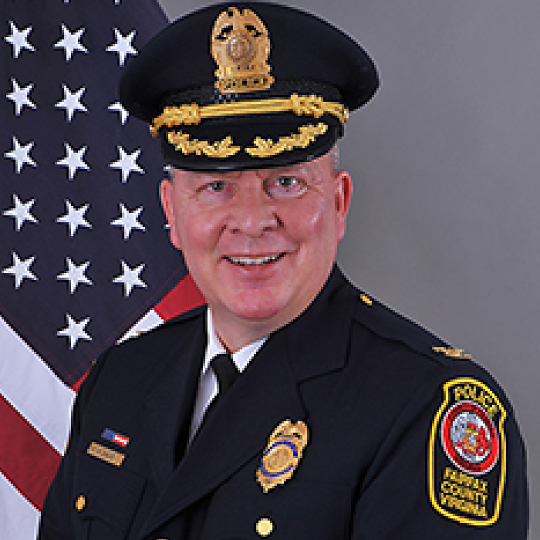
Chief Kevin Davis
Warrick Dunn

Warrick Dunn is a former NFL running back and a three-time Pro Bowl selection. Dunn is well known for his philanthropic endeavors and success as a professional football player. Warrick started Homes for the Holidays in 1997 during his rookie year with the Tampa Bay Buccaneers. The program is a tribute to his mother, Betty Smothers, a Baton Rouge police officer who as a single mother of six worked tirelessly to achieve the American dream of owning her own home. While working a second job as a security guard, she was killed in the line of duty and was never able to realize that dream. Warrick Dunn Charities was founded in 2002, to improve lives through innovative programming inspired by Dunn’s life journey. To date, the program has rewarded over 204 single parents and over 549 dependents for achieving first-time homeownership nationwide.
Dunn’s football career began at Florida State University. In 1997, Dunn was drafted by the Tampa Bay Buccaneers. He played for the Bucs for five years before signing with the Atlanta Falcons in 2002. Six seasons later, in 2008, he returned to the Tampa Bay Buccaneers for his final season.
His 2008 autobiography, Running for My Life, details his life and battles with depression. As a public speaker and advocate, he often speaks about his battle with mental health and the importance of going to counseling. After a 12-year career, Dunn retired and in 2009 was approved by NFL owners to become a limited partner of the Atlanta Falcons. In 2013, Dunn graduated with his EMBA from Emory University and was selected to join the first class of NFL Legends.
In February 2020, Dunn launched his second nonprofit, WD Communities. WD Communities will support families from the beginning to the end of the purchase of affordable or transitional housing and provide support services, including Financial Literacy, Health & Wellness, Education Attainment, and
Entrepreneurship & Workforce Development. The organization is committed to working with families over the course of several years.
Warrick serves on numerous boards and has made it his life's mission to impact future generations by helping fulfill his mother's dream and by continually giving back to the community and challenging others around him to do the same.
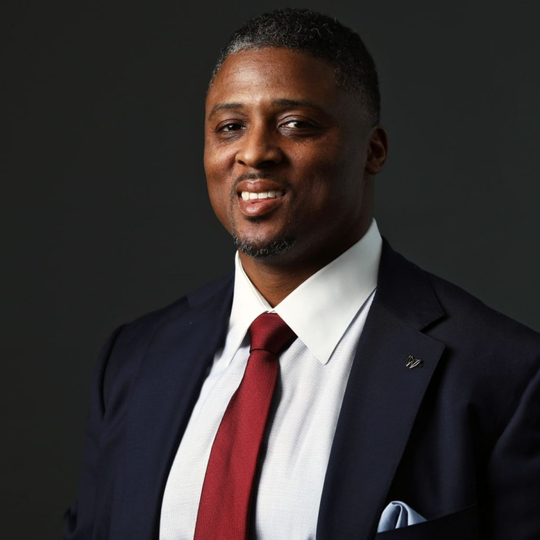
Warrick Dunn
Ganesha Martin

Ganesha Martin is a highly sought after expert on police reform. Martin's unique perspective stems from her experience working in local government, the Mayor’s Office, within police departments, and now monitoring other police departments around the country. She regularly speaks and trains on Department of Justice consent decrees, police reform and accountability, and public safety. She’s a member of the Council on Criminal Justice, an invite-only, nonpartisan organization and think tank for leaders in the criminal justice field. In 2019 she was one of 40 community policing experts invited to Nairobi, Kenya to share community policing strategies during the Convening on Civilian Police Reform by Open Societies Foundation. She was also selected as Top 40 under 40 by the International Association of Chiefs of Police and the Baltimore Community Mediation Center’s advocate of the year. Martin’s expert commentary has been featured in The New York Times, The Baltimore Sun, CNN, and the Washington Post among others.
Martin worked as Assistant Deputy Mayor where she oversaw six agencies, one of which was the police department. Shortly thereafter, she was asked to be the Chief of Staff to the Police Commissioner for two years. In the interim, she was the acting legislative director and before returning from Annapolis, she told the then police commissioner there needed to be a singular and strategic focus on how they engage their communities. Martin and the police commissioner created the Bureau of Community Engagement and the next day Freddie Gray died.
Ganesha Martin is now the chief of the Department of Justice Compliance and Accountability/External Affairs at the Baltimore Police Department.

Ganesha Martin
Kathleen O'Toole

Kathleen O’Toole is a partner at 21CP Solutions. She is an attorney and career police officer who served as Chief of Police for the Seattle (WA) Police Department, Commissioner of the Boston (MA) Police Department, and Massachusetts Secretary of Public Safety. She also served as Chief Inspector of the Garda Síochána, the Irish national police service.
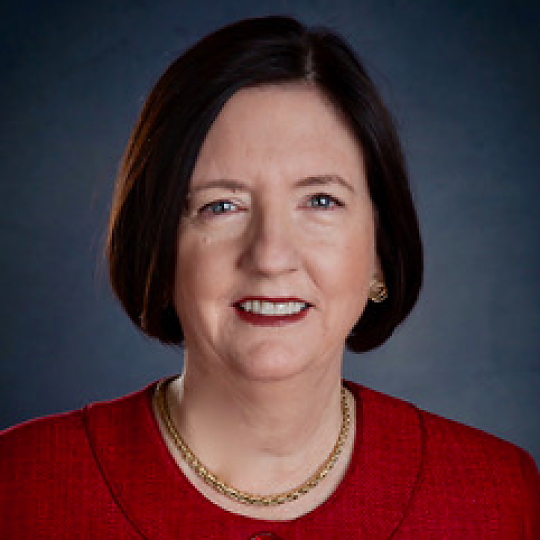
Kathleen O’Toole
Constance 'Connie' Rice

Constance ‘Connie’ Rice is a civil rights lawyer and author whose coalition cases have won over $10 billion in damages and policy changes that include the largest settlement in civil rights history. California LawBusiness ranked her as one of California’s Top Ten Lawyers. In 2006, Rice led partners that ranged from police to gang interventionists to launch the nation’s most successful gang and community violence reduction system. In 2013, the Independent Sector awarded Rice the John W. Gardener Award for being “the indispensable architect of the transformation of…Los Angeles’ approach to both policing and to its longstanding gang epidemic.” And in 2014, President Barack Obama appointed Rice to his President’s Task Force on 21st Century Policing.

Constance ‘Connie’ Rice
Sean Smoot

Sean Smoot is Managing Partner at 21CP Solutions, LLC. Smoot provides consulting services to several state and local law enforcement agencies as well as private companies. He is a member of the Baltimore (MD) and Cleveland (OH) Police Departments' consent decree monitoring teams and also serves as director of the Police Benevolent & Protective Association of Illinois and the Police Benevolent Labor Committee. Smoot holds a Bachelor of Science degree in criminal justice sciences from Illinois State University and a Juris Doctor degree from the Southern Illinois University School of Law, where he served as business editor of the SIU Law Journal. Smoot was a member of the Executive Session on Policing and Public Safety at Harvard University's Kennedy School of Government from 2008 to 2014. Smoot also served as a police and public safety policy advisor to the Obama-Biden Presidential Transition Teams. President Obama later appointed him to the Task Force on 21st Century Policing.
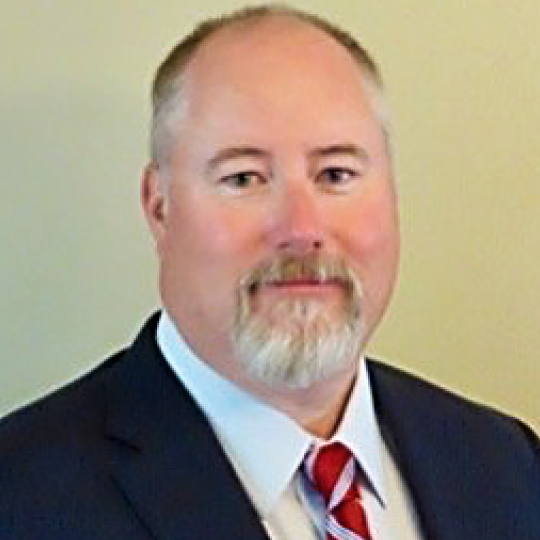
Sean Smoot
Leodis Strong
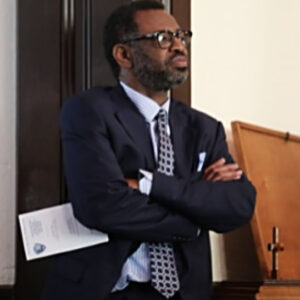
Leodis Strong is a visionary, progressive-thinking, mission-focused Christian Minister with extensive bi-vocational experience, having served as an influential Pastor of high-profile churches and as a Supervisory Clinical Chaplain within the Veterans Affairs Department of the Veterans Health Administration. Called to Ministry in 1969 when he was an eighteen-year-old sophomore at the University of Arkansas at Monticello, Leodis has gone on to serve as Pastor of Churches with memberships ranging in size from ten persons to eight hundred in multiple states from Arkansas, Massachusetts, New York, Oklahoma, North Carolina, and Alabama.
In addition to serving as a Pastor, Leodis also served in Oklahoma and North Carolina as a Clinical Staff Chaplain and Acting Chief of Chaplains in Oklahoma from 1991 until 2006 and then as Chief of Chaplains (Supervisory Chaplain) in North Carolina from 2006 until his retirement 1n 2010 from the Veterans Affairs Medical Centers of the Veterans Health Administration.
While serving as a Clinical Chaplain, Leodis was recognized for his work with the American Red Cross during the bombing of the Alfred P. Murrah Federal Building in Oklahoma City, OK, received an “Outstanding Rating Certificate” from the Department of Veterans Affairs was recognized as Chaplain of the Month by the National Chaplains Center and received numerous other awards and recognitions for his leadership and provision of services to Veterans and their families and Medical Center Staff.
Leodis has been recognized as a robust, principled, and mission-focused servant-leader within the African Methodist Episcopal Church and the larger Faith community. He was unanimously elected to a four-year term as President of the AME (African Methodist Episcopal) Chaplains Association in 2004, elected as a member of the General Board of the AME Church from 1984-to the present, member of the Executive Committee, the Commission of Statistics and Finance, the Commission on Retirement Services of the General Board and also served in other leadership roles.
In 1990, because of the leadership he was providing to his community at large, he was elected by his community as a member of the Board of Education of the Millwood Independent School District #37 and, subsequently, was elected as President and received the President’s Service Award for “distinguished service and leadership.” He was a founding member and Vice-President of the One Church, One Child Ministerial Advisory Board of Oklahoma, an ecumenical group of pastors whose mission is to provide foster and adoptive homes and families for African American children who are wards of the state of Oklahoma and was instrumental in helping the organization to seek and receive multi-year grants of $300,000 to fund its efforts. In 1995-96, Leodis served as a member of the state-wide Advisory Committee, appointed by the Governor of Oklahoma to study and make recommendations to the Governor and state legislature for Welfare reform for the state. They were recognized by the state of Oklahoma for “outstanding service in Oklahoma’s Block Grant Reform Process.” President Bill Clinton invited him to the White House for a reception where he and other community leaders from across the country were recognized for their service and leadership.
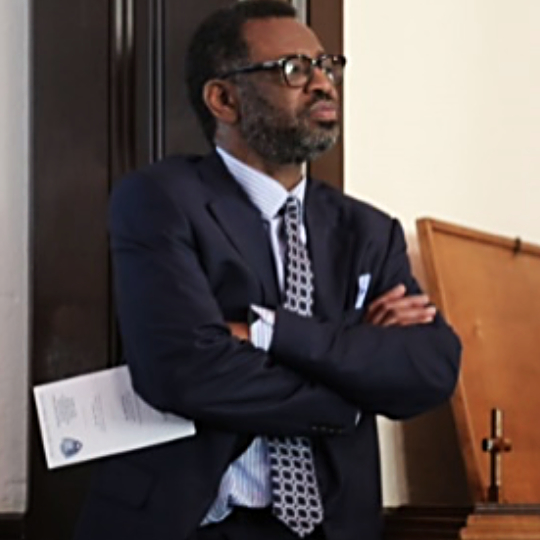
Leodis Strong
National Policing Institute
The National Policing Institute (NPI), formerly the National Police Foundation, is an independent, nonpartisan, and nonprofit research and training institute with an unwavering commitment to addressing policing’s most complex challenges through evidence-informed solutions and innovation.
Founded in 1970, NPI has remained at the forefront of challenging the status quo and helping shape American policing practices through bold research and experimentation, training, and technical assistance. Since its inception, NPI has assisted and encouraged law enforcement organizations and leaders to adopt and adapt the most effective programs, resources, and tools available to serve their communities.
By translating research and applying lessons learned to practice, NPI offers guidance and support in addressing organizational and operational challenges and enhancing excellence in policing and community safety.
The NPI team, comprised of more than 40 researchers, professional staff, and former police practitioners, collaborates with agencies to conduct and apply research and best practices through training and technical assistance. NPI’s work currently centers around four key goals: (1) reducing violent crime involving firearms, (2) promoting effective supervision and management, (3) strengthening trust and legitimacy of policing in communities, and (4) enhancing the overall safety and wellness of officers and staff.

Stay Connected!
We’re just getting started! There will be much more to share in the coming months.
Sign up to be notified when additional content and announcements for the 54th Mile Policing Project are available.
"*" indicates required fields
